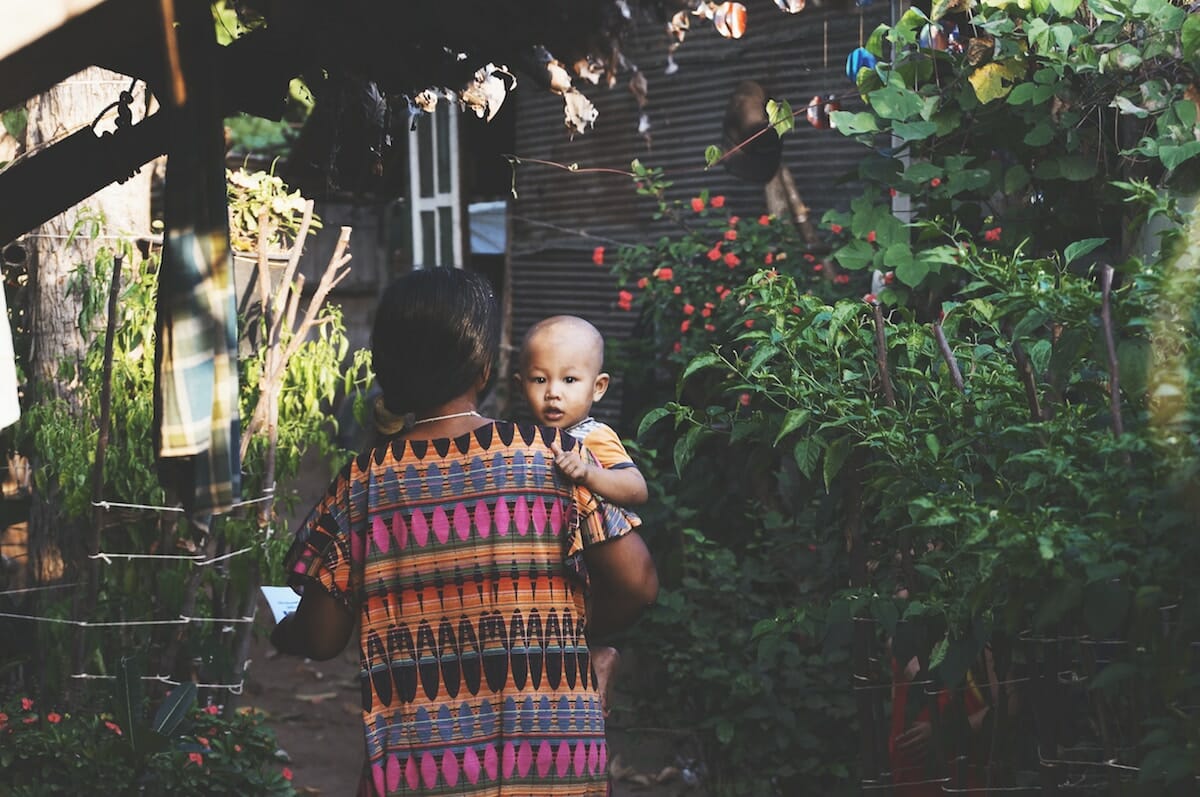7 Things I Learned About Babies From My Host Culture
“Fortunately, my dear Ethiopian friend has been there for me every step of the way. She encouraged and helped me learn how to be a mom. “
Raising my first baby in a foreign culture has been an interesting experience. I didn’t know anything about babies when my girl was born. I remember thinking as the nurse ushered us out of the hospital, “Are you sure you want me to leave the hospital with this baby? Don’t I need to take some sort of qualifying test? Maybe I should stay another night to go over the basics again?”
It was great to have a few weeks with my mom and sisters in America. Then I was off to Ethiopia with a baby that I had very little idea how to care for. Fortunately, my dear Ethiopian friend has been there for me every step of the way. She encouraged and helped me learn how to be a mom. When I was back in America this summer, I realized some of the differences in taking care of babies in Ethiopia versus America.
Here are seven things I have learned about raising babies from Ethiopians that I will carry with me where ever I go.
Babies need very few possessions. Most Ethiopians don’t have highchairs, even fewer have cribs. They definitely have no changing tables, strollers in our town, or have very few toys. For sure they have no bottle warmers, baby food crushers, rock-n-plays, rocking chairs, or sound machines. Now, let me be clear, we have some of this stuff (I brought a rocking chair from America), but we have totally survived without many items. My host culture has encouraged me to make do without—since I couldn't order off Amazon Prime.
I don’t have to do this alone. I love the community approach to raising children. Ethiopians live near their families; aunties and grandmothers are second moms. I am obviously very far from my family, but Rahel has been a second mom to Rowena. I love the idea of raising children in a community and not having to go at it alone.
Sun for fifteen minutes a day. I didn’t have any vitamin D drops with me and my Ethiopian friend told me to just put the baby in the sun for fifteen minutes every day to get that natural vitamin D power. It became a part of our morning routine to sit outside and it was also good for me to get some fresh air and “D power”.
It’s okay to wear your baby for nap-time. I was pretty stressed out about getting Rowena on a sleeping schedule and sleeping in her own bed. She went through seasons where she just didn’t sleep well alone. She would sleep for fifteen minutes and be awake, tired and angry. Maybe it was sleep regression or teething, but whatever the reason, when Rowena wasn’t sleeping well, Rahel would just grab her and put her on her back with a traditional Ethiopian wrap. Rowena would be asleep in a minute. We did that for about two months for her morning and afternoon nap. I worried about all the bad habits we were creating, but then one day she just napped in her bed. Now she naps for 1.5-2 hours twice a day.
You don’t have to use soap all the time. My doctor here in my host country suggested that I not use soap on Rowena, so I try not to use soap on Rowena as much as possible. Soap can actually cause more UTI’s in baby girls as well as increase the risk of skin irritations. Now, I pretty much just use soap when Rowena has had a blow-out diaper, but besides that, we don’t really use it during bath time.
Women are happy after having babies. I was trying to explain to my Ethiopian friend about postpartum depression after having a baby and she was so confused. Why would anyone be sad after a baby? I told her about the hormones, adjusting to a new role as a mom and not as much time for work and personal time. Her response really struck me as I was adjusting to my new role as a mom and battling my own hormones. “Here in Ethiopia, the moms are happy after having a baby. The baby is alive, mom is alive, and the mom just puts the baby on her back and keeps working.” I know that postpartum depression is real. I didn’t have full-blown postpartum depression, but there were days I felt stuck, battled purposelessness, and cried lots of tears. Her statement could have offended me as I struggled to find my way, but instead, it helped me shift my perspective on being a mom. I am in the season where many friends are having babies, but just as many can’t get pregnant or have lost babies. I try to remind myself when I am feeling down that I have a lot to be thankful for—I am alive, my baby is alive, and I should just put my baby on my back and keep working.
Watch out for flatheads. Ethiopians don’t lay their babies on their back because of the risk of flat head syndrome—instead Ethiopian babies sleep on their side. My Ethiopian friend kept telling me not to put Rowena on her back because she would get a “flat head”. I kept telling her about the research and SIDS. Sure enough, Rowena got a flat head, which I then dedicated months to try to correct. Who really knows the safest way for a baby to sleep, but my host city doesn’t have fancy helmets to fix flat head, so they have to be aware of such things.
What are some amazing tips that you learned from your host culture?

